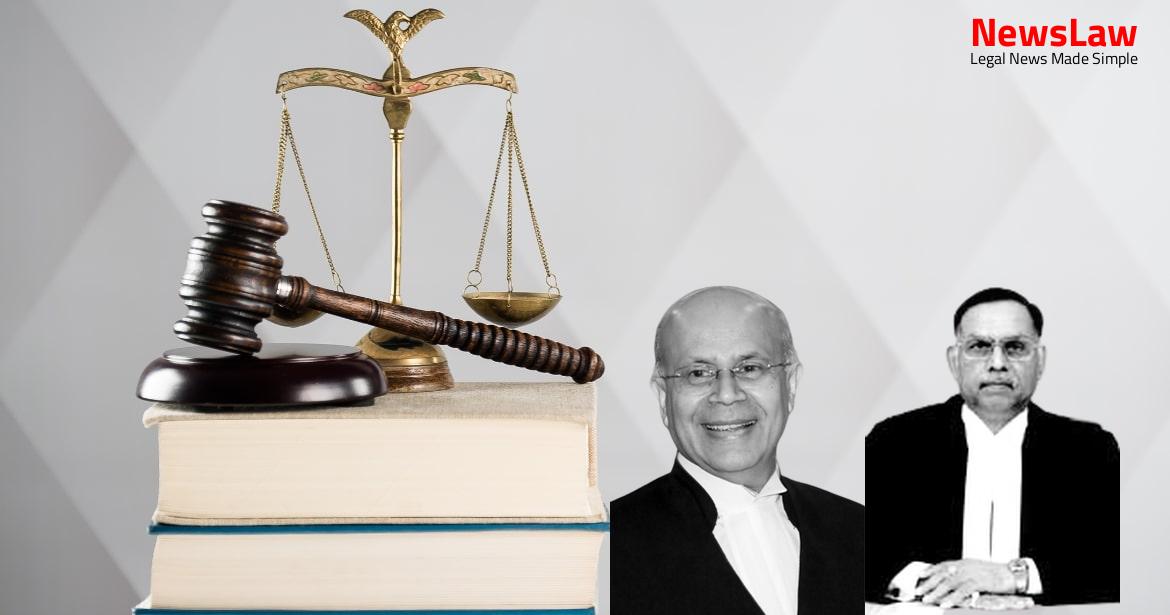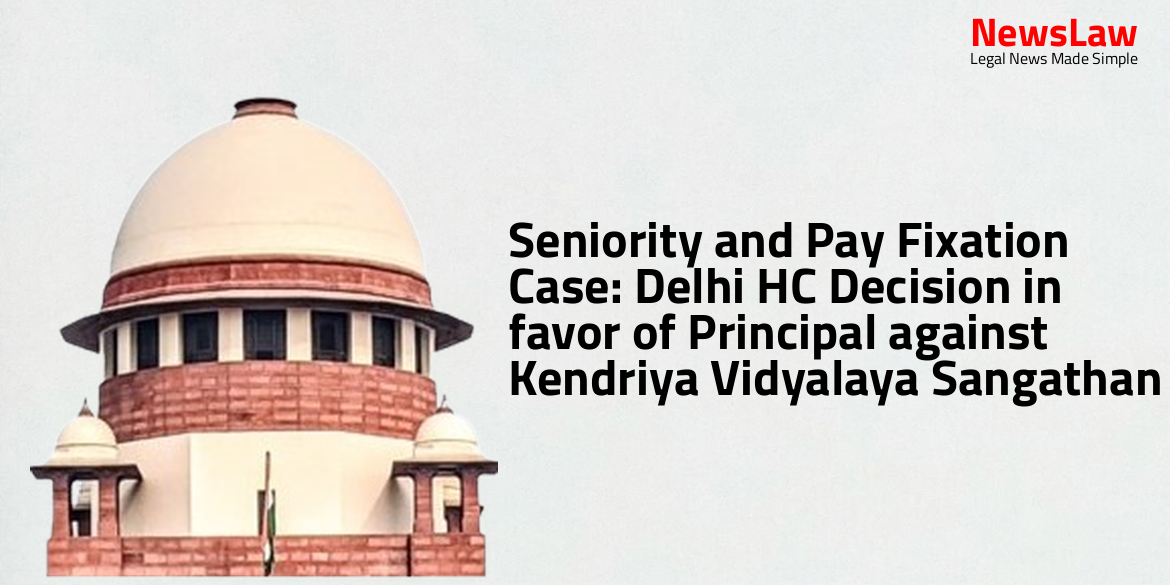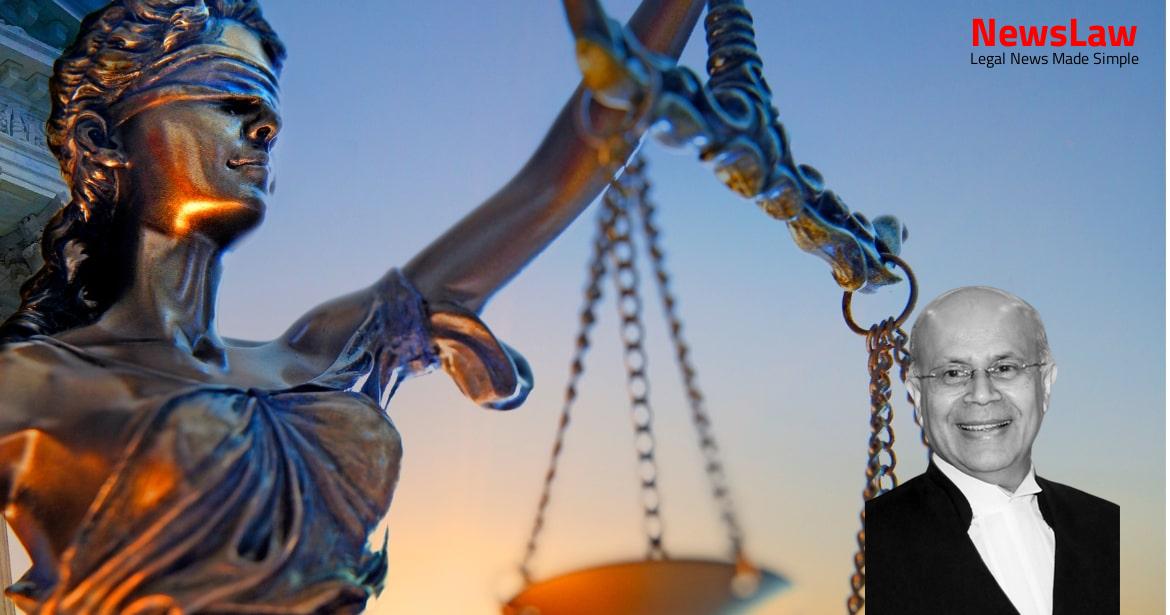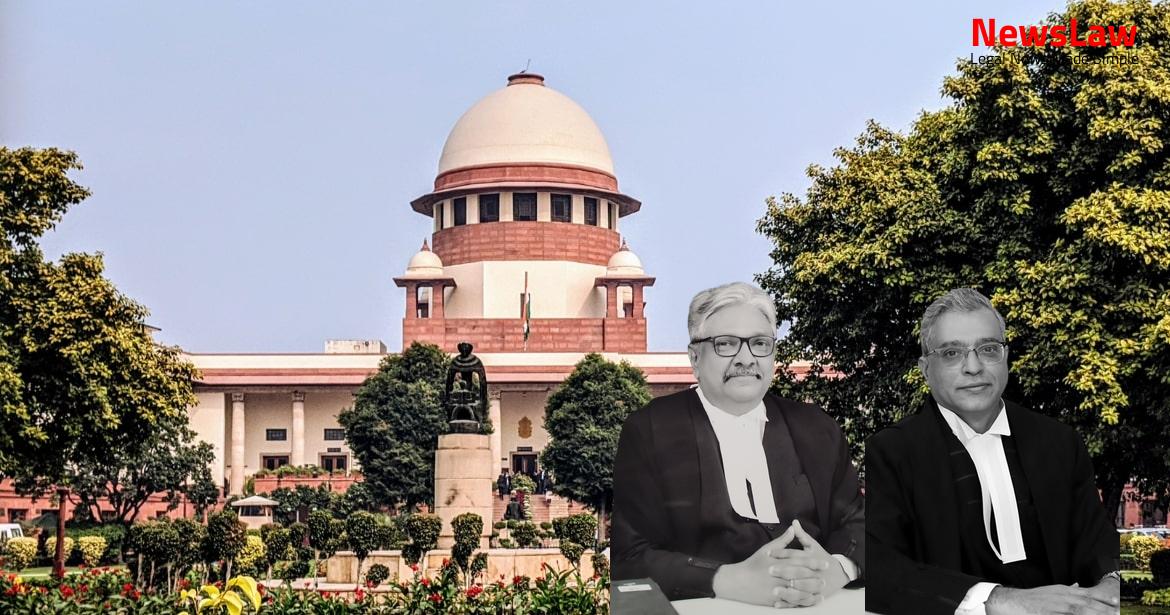In a significant ruling, the Supreme Court has addressed the case of Jaipur Municipal Corporation against the owners of Lal Niwas. The dispute revolves around the conversion charges imposed by the Corporation and the subsequent refund demanded by the owners. The Court examined the implications of the amended Section 173-A of the Rajasthan Municipalities Act, 1959 in this context. Stay tuned for key insights into this important land use dispute.
Facts
- The appeal has been filed by Jaipur Municipal Corporation challenging the Division Bench judgment of Rajasthan High Court, Bench at Jaipur dated 12.01.2018.
- The Division Bench judgment allowed the Special Appeal filed by the respondents questioning the judgment of the learned Single Judge.
- The respondents are directed to refund the conversion charges deposited by them along with six percent interest.
- The property in question, ‘Lal Niwas’, was purchased by Lt. Col. Late Harnath Singh from His Highness Sawai Man Singh of Jaipur in 1959.
- The Special Appeal was allowed by the Division Bench on 12.01.2018, overturning the judgment of the Single Judge dated 04.07.2006.
- Late Harnath Singh passed away on 08.01.1997, after which the respondents became owners of the property.
- Corporation issued an order on 22.02.2003, asking the respondents to deposit Rs.1,01,04,672 for conversion charges.
- Respondents deposited the amount on 20.03.2003, reserving their rights.
- Building plan was approved by the Corporation on 08.01.2004 for a multi-storeyed commercial-cum-residential complex.
- Respondents applied for conversion of land use to develop a complex in an area of 8080.14 square meters.
- Corporation was ordered to refund various amounts totaling Rs. 1,13,96,175 along with interest as damages.
- Cost of litigation and any other deemed fit orders were requested in the writ petition.
- Corporation filed a reply to the writ petition.
Also Read: Dispensation with Personal Appearance in Criminal Case: Landmark Judgement by Supreme Court of India
Arguments
- The Corporation directed the respondents to deposit conversion charges, which were deposited by the respondents themselves.
- The respondents are not entitled to claim any refund for the deposited amount.
- The respondents deposited the amount under protest.
- The respondents argue that they were not liable to pay any conversion charges and the Corporation should refund the amount as it was collected illegally and arbitrarily.
- The learned Single Judge found that the land in question was being used for commercial purposes.
- The respondents had to seek permission for using the land for commercial purposes as per Section 173-A of the Rajasthan Municipalities Act.
- The Division Bench allowed the appeal without considering relevant issues and provisions of Section 173-A.
- The learned counsel for the respondents argues that they were forced to deposit the amount by the Corporation and were forced to apply for conversion of land use from residential to commercial.
- The property in question has been used for commercial purposes since its purchase in 1959.
- The land use of the plot in question as on relevant dates was commercial according to the Master Plan.
Also Read: Case of Unnatural Death in Matrimonial Home: Supreme Court Judgment
Analysis
- The Division Bench in the impugned judgment failed to consider the issues raised in the appeal in the correct perspective and did not address the effect of the statutory Scheme under Section 173-A as amended by Act 19 of 1999.
- The unamended and amended Section 173-A reflect substantial changes in the statutory provision of the Rajasthan Municipalities Act, 1959.
- The Land Use Plan 2011, in force from 01.09.1998, indicated that the property in question was designated as residential.
- The Division Bench did not take into account sub-section (2) of Section 173-A as amended by Act 19 of 1999 and its consequences.
- The judgment failed to uphold the law laid down by the Supreme Court in a relevant case and did not address the land use in the Master Plan at the relevant time in 2002 when the application was submitted.
- The amended Section 173-A has not only changed the heading of the Section but also its contents.
- The State Legislature amended Section 173-A due to the perceived impediment it posed to proper planning of urban areas for planned and regulated development.
- The amendments in Section 173-A were aimed at ensuring planned development of municipal areas and imposing restrictions on land use changes not in line with the Master Plan.
- Section 173-A of the Rajasthan Municipalities Act, 1959 was amended by the Rajasthan Municipalities (Amendment) Act, 1999.
- Before the amendment, the section allowed the State Government to permit the change of land use in public interest, subject to conversion charges.
- After the amendment, stricter regulations were imposed on changing land use in municipal areas, requiring approval from the State Government or authorized authority.
- The amended section also introduced provisions for regularizing unauthorized changes in land use within a specified timeframe.
- Conversion charges imposed for changes in land use are considered the first charge on the interest of the person liable and are recoverable as arrears of land revenue.
- The ratio laid down in the Pareshar Soni case was based on the interpretation of the unamended Section 173-A of the Act.
- This interpretation set the ratio as per the provisions of the unamended Section 173-A of the Act.
Also Read: The Jodha Ram vs. Kaushaliya Dispute: Supreme Court Judgement Summary
Decision
- Land use of Plot No.21, Lal Niwas was determined to be commercial, not residential
- Each party shall bear their own costs
- The appeal is allowed and the impugned judgment is set aside
Case Title: THE MAYOR JAIPUR MUNICIPAL CORPORATION Vs. THAKUR SHIV RAJ SINGH
Case Number: C.A. No.-006030-006030 / 2019



